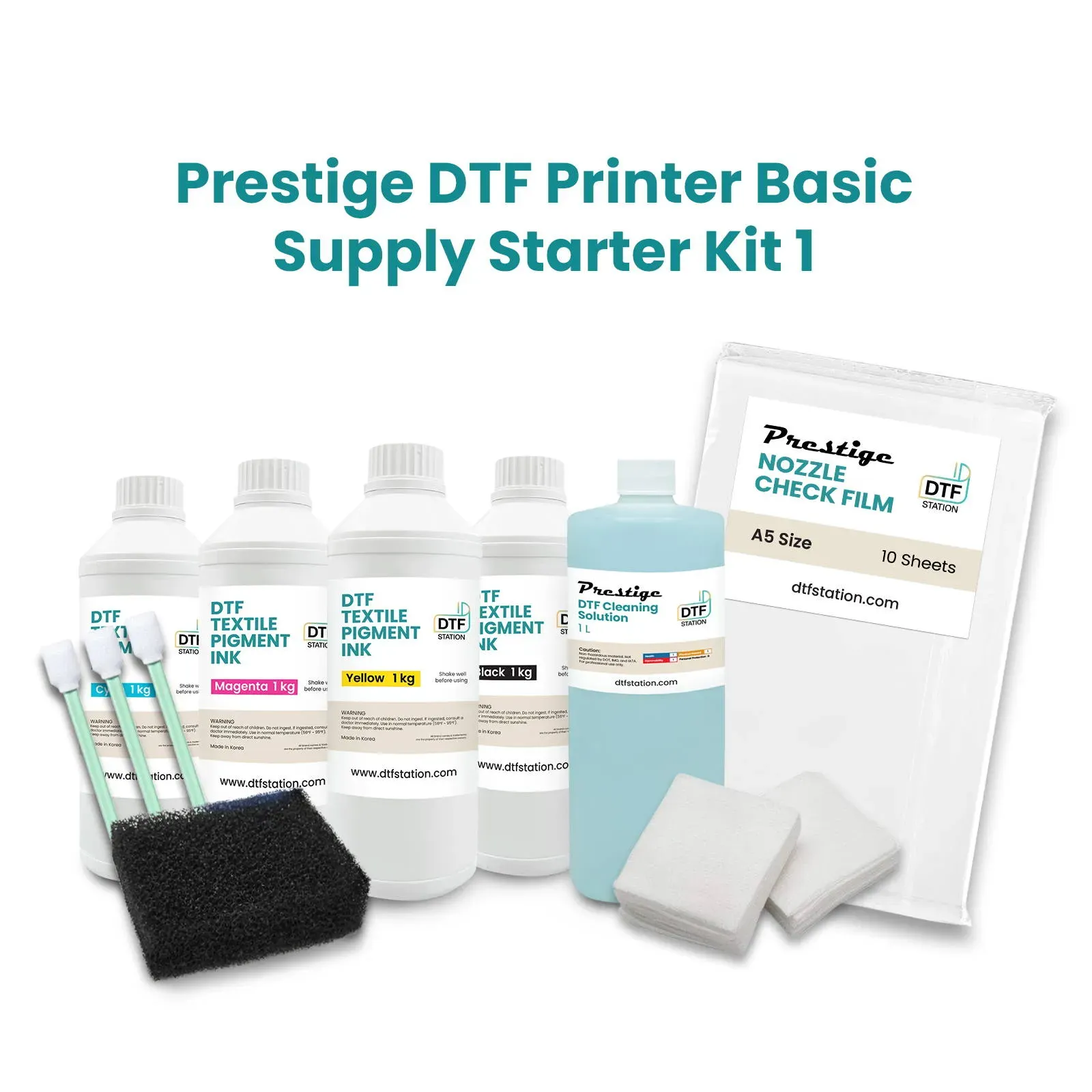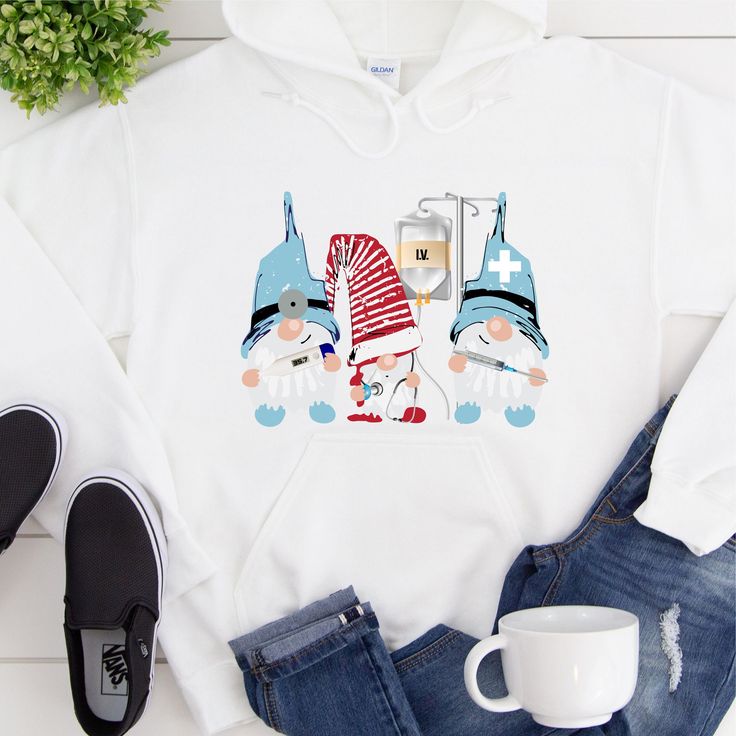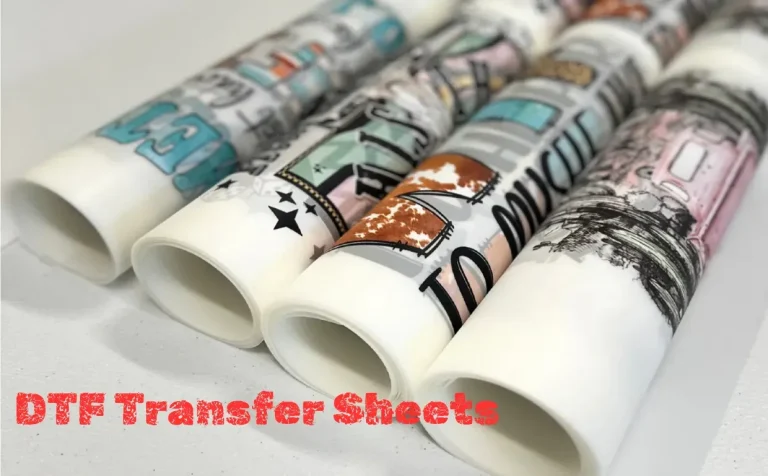DTF supplies are rapidly becoming essential for those looking to revolutionize their printing operations in the textile industry. Direct to Film (DTF) printing offers a dynamic approach to transferring designs onto fabric, making it a favorite among businesses and hobbyists alike. The process requires specific equipment, including a DTF printer and heat press machine, as well as high-quality DTF inks to ensure vibrant colors and durable prints. By understanding the components of DTF supplies, you’ll be well-equipped to navigate the complexities of this innovative printing method. This guide will provide you with important insights into every aspect of DTF printing, enabling you to achieve outstanding results in your custom apparel projects.
When diving into the world of fabric printing, one may encounter terms like Direct to Film, which encapsulates a modern technique gaining popularity among creators and entrepreneurs. This innovative method utilizes specialized printers alongside transfer films to achieve stunning designs on various materials. To facilitate this process, a heat press machine is imperative for fusing the printed image onto the fabric, while the unique DTF inks ensure exceptional color quality and longevity. Understanding these elements is crucial for anyone aiming to excel in the fabric printing market, whether for personal projects or commercial endeavors. By embracing the advancements in this field, you can transform your ideas into wearable art with ease.
Understanding DTF Trading Supplies
When it comes to DTF printing, understanding the range of supplies needed is crucial for success. DTF supplies include a specialized printer, transfer films, adhesive powders, DTF inks, and heat press machines. Each of these components plays a significant role in the printing process, contributing to the vibrancy and durability of the final product. Therefore, having a solid grasp of these elements can help streamline your printing processes and enhance output quality.
The choice of DTF supplies can impact the creativity and efficiency of your operations. For instance, selecting the right DTF printer with high resolution capabilities will markedly improve your printed images. Moreover, using appropriate transfer films ensures that your prints adhere well to different types of fabrics, while suitable adhesive powders enhance the durability of these designs. Together, these supplies equip you with the tools needed for high-quality textile prints.
The Essential DTF Printer Setup
A DTF printer is among the first supplies you should prioritize when entering the DTF printing industry. These specialized printers are designed to work efficiently with transfer films, utilizing both CMYK and white inks to enhance color vibrancy and depth. Notable brands like Epson and Mimaki offer reliable models that cater to various production needs, ensuring that you can produce high-quality prints quickly and consistently.
Moreover, setting up your DTF printer correctly is essential to prevent common issues like ink clogging and inconsistent print quality. Regular maintenance of your DTF printer can also lead to a longer lifespan and better print performance. Keeping the printer clean, as well as being mindful of ink quality and humidity levels in your workspace, will greatly contribute to your success in DTF printing.
The Importance of Adhesive Powder
Adhesive powder plays a pivotal role in DTF printing, serving as the essential connector between the printed design and the fabric. This powder, when heated, forms a bond that fuses the design to the material, ensuring it withstands washing and daily wear. There are various types of adhesive powders designed for specific fabric types and ink combinations, making it essential to choose one that complements your printing setup.
Choosing the right adhesive powder can make a significant difference in the final output’s durability and quality. If applied correctly, the powder not only improves adhesion but also enhances the overall vibrancy of printed designs. Experimentation with different adhesive formulations can help you find the perfect match for your specific applications, enabling you to produce consistently high-quality garments.
High-Quality DTF Inks for Vibrant Results
DTF inks are specially formulated to provide the best results in the Direct to Film printing process. These inks are designed to adhere well to the printed films and offer vibrant colors that stand out on fabric. Utilizing high-quality DTF inks ensures that your prints maintain their integrity over time, with excellent wash durability and resistance to fading.
Moreover, advancements in ink technology have led to eco-friendly options that not only promote sustainable practices but also enhance the overall quality of prints. By investing in quality DTF inks, you’re ensuring that your printed designs not only look great upon completion but also maintain their appeal after multiple washes, thus providing greater satisfaction to your end customers.
Optimizing Heat Press Machines for DTF Printing
The heat press machine is a central piece of equipment in the DTF printing process, and its functionality directly impacts the quality of your prints. Adequate temperature and pressure are crucial for ensuring that designs transfer correctly from the DTF film to the fabric. Investing in a reliable heat press, like those from Geo. Knight & Co. or Hotronix, will give you peace of mind that your prints will adhere accurately.
Moreover, understanding how to optimize the settings on your heat press machine can also lead to improved results. Factors such as time, temperature, and pressure must be adjusted based on the fabric type and thickness of the DTF film used. By mastering these settings, you can ensure consistent and high-quality transfers every time you print.
Design Software for Perfect Print Preparation
Using the right design software is essential for achieving high-quality prints in DTF printing. Programs like Adobe Illustrator or CorelDRAW provide the necessary tools for designers to create detailed artwork and prepare it for printing. This software allows for features such as color separation and layering, ensuring that your designs translate beautifully from digital format to printed product.
Additionally, utilizing design software that integrates well with DTF printing technology can save time and reduce errors during the printing process. Many of these programs offer tutorials and resources to help users navigate the complexities of print preparation, empowering you to maximize the quality and impact of your final apparel designs.
Frequently Asked Questions
What are the essential DTF supplies needed for successful DTF printing?
To ensure effective DTF printing, you need several essential supplies: a specialized DTF printer for high-quality prints, transfer films made from high-quality PET material for optimal adhesion, adhesive powder that helps fuse the ink to the fabric, a reliable heat press machine to apply the right temperature and pressure, and DTF inks designed specifically for the DTF process to achieve vibrant and durable prints.
How does a DTF printer differ from traditional printers?
A DTF printer is specifically designed for Direct to Film printing, featuring unique capabilities such as printing directly onto transfer films with CMYK and white inks. Unlike traditional printers, DTF printers focus on producing vibrant color prints that adhere to fabrics with the help of adhesive powder and heat pressure, making them ideal for custom apparel.
Can I use any heat press machine for DTF printing?
While many heat press machines can technically work for DTF printing, it is recommended to use a high-quality heat press that allows you to adjust the temperature and pressure accurately. Brands like Geo. Knight & Co. and Hotronix are popular among DTF users for their reliability and performance in achieving successful transfers.
What type of DTF inks should I use for the best results?
For optimal results in DTF printing, it is essential to use high-quality DTF inks specifically formulated for this process. These inks not only provide vibrant prints but also offer excellent wash durability. Eco-solvent DTF inks are also available for those looking for more environmentally friendly options.
How does the choice of transfer film affect DTF printing?
The choice of transfer film significantly impacts the quality of DTF printing. High-quality PET films ensure proper ink adherence and durability, while variations in thickness and coating can affect print vibrancy and detail. It’s crucial to select the right film that complements your printer and the fabrics you plan to use.
What are the advantages of using DTF supplies compared to traditional printing methods?
DTF supplies offer several advantages over traditional printing methods like screen printing. DTF printing allows for vibrant, high-quality prints with the flexibility to customize small batches cost-effectively. Additionally, DTF printing can be done on a wider variety of fabrics, increasing its versatility for different applications in the apparel and promotional product industries.
| Key Supplies for DTF Printing | Description |
|---|---|
| DTF Printer | Specialized printers designed for DTF processes, usually utilizing CMYK and white inks, providing high-quality outputs. |
| Transfer Film | High-quality PET film essential for transferring vibrant designs onto fabrics, available in various thicknesses. |
| Adhesive Powder | Applied to wet ink to help bond the print to fabric when heated, with different types suited for various materials. |
| Heat Press Machine | Necessary for applying the correct heat and pressure for transfers; options from brands like Geo. Knight & Co. are recommended. |
| DTF Inks | Formulated for optimal performance in DTF printing, including eco-solvent types that minimize environmental impact. |
| Design Software | Programs like Adobe Illustrator are used for creating and preparing designs, enabling optimal print formats. |
Summary
DTF supplies are essential for anyone looking to harness the benefits of this innovative printing method. The market for DTF printing is expanding rapidly as businesses recognize the advantages of versatility, cost-effectiveness, and the ability to create customized clothing efficiently. By investing in the right DTF supplies, you can enhance your printing quality and meet the growing demand for personalized and durable apparel, staying competitive in an evolving industry.





